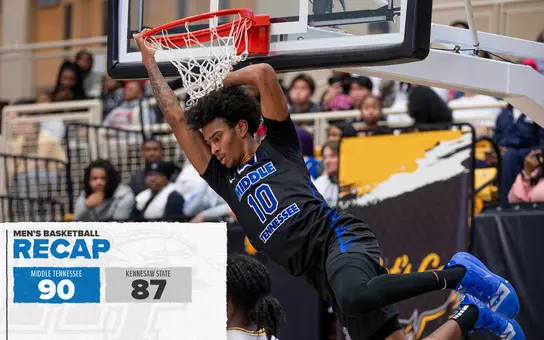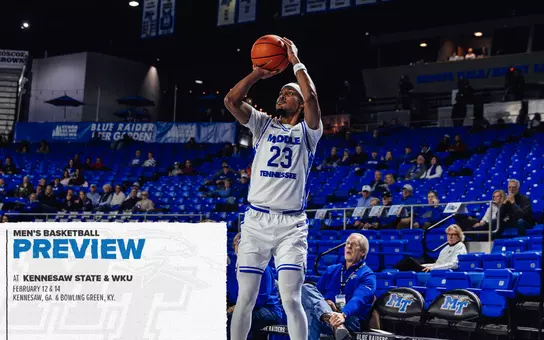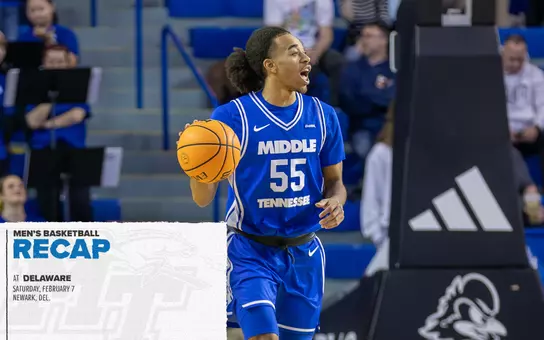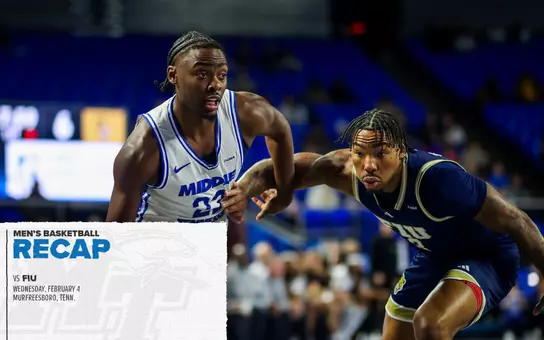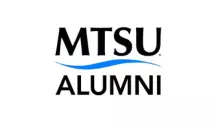Middle Tennessee State University Athletics
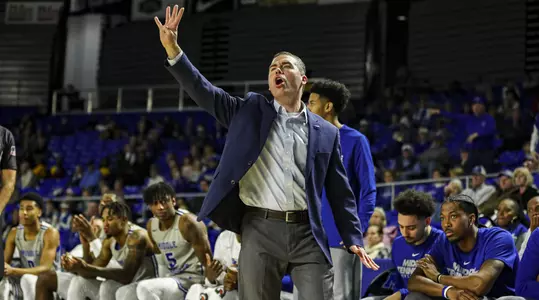
The Art of Scheduling
6/29/2020 5:00:00 PM | Men's Basketball
How McDevitt and Long build the Blue Raider basketball schedule
MURFREESBORO, Tenn. — Before Middle Tennessee takes on the best from Conference USA on the hardwood every season, the Blue Raiders have to make a nonconference schedule that's challenging, provides plenty of learning experiences and is attractive to fans.
With so many variables, the question of who, when and where to schedule can be quite complicated.
"We try to achieve several different objectives," head coach Nick McDevitt said. "We want to prepare our team for conference play by challenging them with both home and away games … and put together an attractive schedule for our fans, as well. Another point that has to be taken into consideration is putting together a fiscally responsible schedule."
Just like running a play or playing defense on the court, making a nonconference schedule is a team effort for the Blue Raiders. The conference then provides their C-USA campaign every season.
Assistant coach Wes Long handles the bulk of creating the nonconference schedule. With that comes a lot of communication back and forth with contacts at different schools around the country whom he's developed a relationship with. Long is also a bit of a math whiz and utilizes his educational background — he has an MBA from Queens University (NC) — to create spreadsheets and different documents regarding who makes the most sense to play when and where.
Once Long and McDevitt have an idea of who to play, when and where, Director of Athletics Chris Massaro gives the OK and contracts are finalized, then game times are discussed.
"It's really a never-ending process," Long said. "Five days after we finalize one schedule, I start working on the next year's schedule. I'm constantly searching on posting boards where schools post what they're offering or looking for … and it's constant communication with other schools.
"We have some philosophies in our program we try to stick to, like having more nonconference home games than road games. Generally, you play between 11 and 13 nonconference games … and there are basically three options there. You can play a straight up 11-game nonconference schedule, 11 games with a two-game multi-team event or 10 games with a three-game multi-team event. We like to try and do the last two options, if possible."
Long is constantly searching for teams to make up the next season's schedule, or even for years down the road. He never really takes a break from it, mainly because of how difficult it can be to make a schedule at a program like MT, which has a history of success.
Teams around the country in Power 5 conferences generally aren't as willing to travel to or host teams like Middle Tennessee that have recently been at the top tier of mid-major conferences. The reason is simple: they don't want to lose those games when they can just as easily schedule a team that isn't as good.
"The success is a real positive in a lot of ways, but the more success you have as a mid-major, the harder scheduling becomes," Long said. "The Power 5 conference teams generally don't want to buy a game against a historically good team; they want to buy a game against a cupcake that's almost a guaranteed win.
"That can sometimes make it where you don't have enough Tier 1, high-quality wins come tournament time at a school like MT, but that's not your fault."
One piece of the puzzle that makes things easier for Long and McDevitt every year are a few rolling contracts with local teams that are generally some of the best mid-major programs in the country, most notably Belmont and Murray State.
The Blue Raiders are also usually involved in an early-season tournament, which can give them both good experience and a spot on national television.
"I think those nonconference, local rivalry games are fun for everyone involved," McDevitt said. "The alumni and fan base go to work with people from those other schools, so it can give you bragging rights in the office for the whole year. It's easy for everyone involved, and those are the fun games that we have to have.
"Those mid-season tournaments also give you a good foundation for the conference tournament down the road, since you have to win three or four games in a few-day span."
All of the different things that go into making a schedule, from the actual competition on the court, the financial ramifications and a good home-and-away balance, create hours upon hours of work for the MT staff every year. The COVID-19 pandemic has made it even tougher, both from travel and financial standpoints.
"The coronavirus has made it more difficult," McDevitt said. "The language in contracts have had to change some, and finding games that make sense financially has become more difficult for everyone."
Coming up with a nonconference campaign is a revolving wheel for Long and McDevitt, and they're constantly finding ways to make an attractive home slate for fans that also prepares the team for the C-USA season and postseason.
"Our home slate will always be attractive for fans to come and watch the Blue Raiders," McDevitt said. "Our fan support is terrific, and our players feel it and see it. Playing in the Murphy Center with a packed house is something you can feel on the court, and having that support this year is even more critical."
With so many variables, the question of who, when and where to schedule can be quite complicated.
"We try to achieve several different objectives," head coach Nick McDevitt said. "We want to prepare our team for conference play by challenging them with both home and away games … and put together an attractive schedule for our fans, as well. Another point that has to be taken into consideration is putting together a fiscally responsible schedule."
Just like running a play or playing defense on the court, making a nonconference schedule is a team effort for the Blue Raiders. The conference then provides their C-USA campaign every season.
Assistant coach Wes Long handles the bulk of creating the nonconference schedule. With that comes a lot of communication back and forth with contacts at different schools around the country whom he's developed a relationship with. Long is also a bit of a math whiz and utilizes his educational background — he has an MBA from Queens University (NC) — to create spreadsheets and different documents regarding who makes the most sense to play when and where.
Once Long and McDevitt have an idea of who to play, when and where, Director of Athletics Chris Massaro gives the OK and contracts are finalized, then game times are discussed.
"It's really a never-ending process," Long said. "Five days after we finalize one schedule, I start working on the next year's schedule. I'm constantly searching on posting boards where schools post what they're offering or looking for … and it's constant communication with other schools.
"We have some philosophies in our program we try to stick to, like having more nonconference home games than road games. Generally, you play between 11 and 13 nonconference games … and there are basically three options there. You can play a straight up 11-game nonconference schedule, 11 games with a two-game multi-team event or 10 games with a three-game multi-team event. We like to try and do the last two options, if possible."
Long is constantly searching for teams to make up the next season's schedule, or even for years down the road. He never really takes a break from it, mainly because of how difficult it can be to make a schedule at a program like MT, which has a history of success.
Teams around the country in Power 5 conferences generally aren't as willing to travel to or host teams like Middle Tennessee that have recently been at the top tier of mid-major conferences. The reason is simple: they don't want to lose those games when they can just as easily schedule a team that isn't as good.
"The success is a real positive in a lot of ways, but the more success you have as a mid-major, the harder scheduling becomes," Long said. "The Power 5 conference teams generally don't want to buy a game against a historically good team; they want to buy a game against a cupcake that's almost a guaranteed win.
"That can sometimes make it where you don't have enough Tier 1, high-quality wins come tournament time at a school like MT, but that's not your fault."
One piece of the puzzle that makes things easier for Long and McDevitt every year are a few rolling contracts with local teams that are generally some of the best mid-major programs in the country, most notably Belmont and Murray State.
The Blue Raiders are also usually involved in an early-season tournament, which can give them both good experience and a spot on national television.
"I think those nonconference, local rivalry games are fun for everyone involved," McDevitt said. "The alumni and fan base go to work with people from those other schools, so it can give you bragging rights in the office for the whole year. It's easy for everyone involved, and those are the fun games that we have to have.
"Those mid-season tournaments also give you a good foundation for the conference tournament down the road, since you have to win three or four games in a few-day span."
All of the different things that go into making a schedule, from the actual competition on the court, the financial ramifications and a good home-and-away balance, create hours upon hours of work for the MT staff every year. The COVID-19 pandemic has made it even tougher, both from travel and financial standpoints.
"The coronavirus has made it more difficult," McDevitt said. "The language in contracts have had to change some, and finding games that make sense financially has become more difficult for everyone."
Coming up with a nonconference campaign is a revolving wheel for Long and McDevitt, and they're constantly finding ways to make an attractive home slate for fans that also prepares the team for the C-USA season and postseason.
"Our home slate will always be attractive for fans to come and watch the Blue Raiders," McDevitt said. "Our fan support is terrific, and our players feel it and see it. Playing in the Murphy Center with a packed house is something you can feel on the court, and having that support this year is even more critical."
MTSU Men's Basketball Recap vs Kennesaw State University
Friday, February 13
Nick McDevitt LIVE: Presented by The Boulevard Bar & Grille (Video) - 2.9.26
Monday, February 09
MTSU Men's Basketball Post Game Press Conference vs FIU 2/4/26
Wednesday, February 04
Nick McDevitt LIVE: Presented by The Boulevard Bar & Grille (Video) - 2.2.26
Tuesday, February 03
